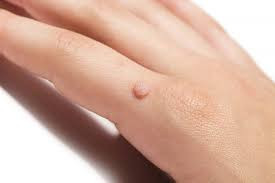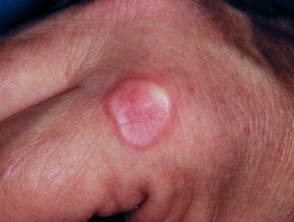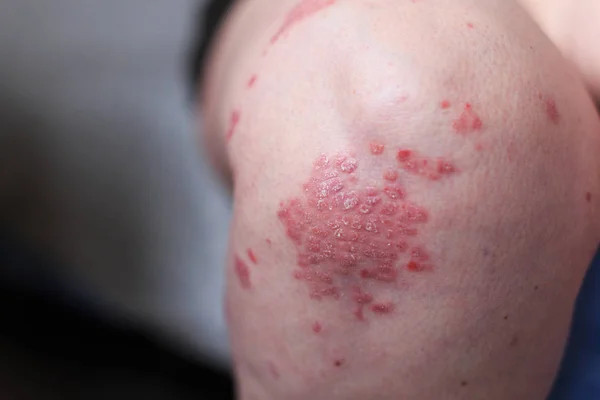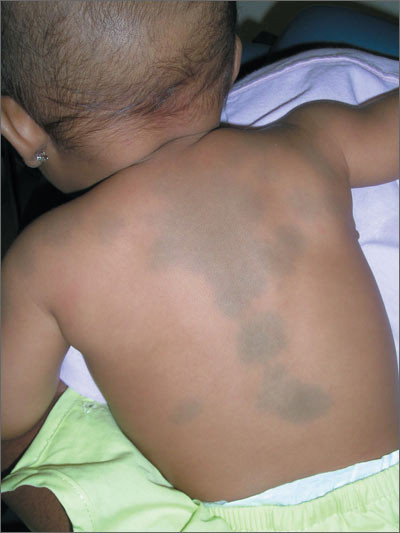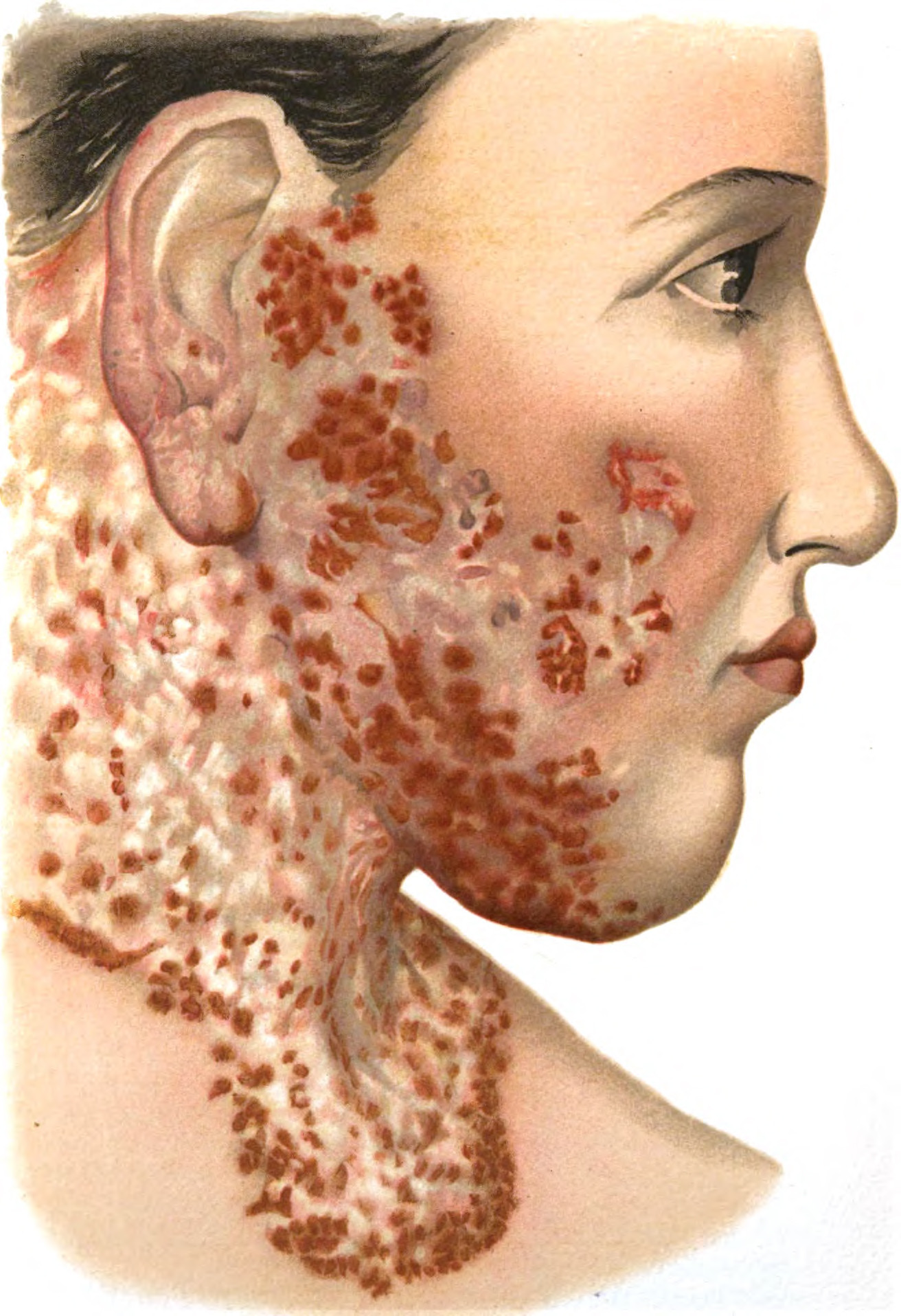Definition
Verruca vulgaris, also known as skin warts, is a skin illness that presents as benign bumps growing on the skin. They do not proliferate and are not hostile. Warts develop on the outermost layer of the skin, known as the epithelial layer. Warts can also grow on human mucous membranes, including the lungs, gastrointestinal tract, or genitals. Skin warts are known as Verruca vulgaris on the skin.
Skin warts can occur in individuals of any age. Having wounds on the skin increases your vulnerability to infections. Treating cutaneous warts can be challenging, but they may resolve on their own after a few years.
Causes
Human papillomavirus (HPV) infection causes skin warts. There exist over 100 subtypes of HPV. HPV types 1, 2, 4, and 7 cause skin warts. Warts can develop anywhere on the skin when the virus enters through skin injuries like wounds or scratching. Manipulating warts by scratching or pulling can lead to further infection.
The virus is highly infectious. It can be spread by person-to-person contact or from different body areas. The transmission mechanism is:
- Direct skin-to-skin contact with the wart
- Coming into contact with virus-contaminated objects including towels, door handles, and toiletries
- Nail biting and cuticle removal
- Shaving
Risk factor
Children are particularly susceptible to skin warts due to their high activity levels and frequent skin injuries. Elderly individuals are more vulnerable to HPV infection, which can lead to skin warts, although skin warts can affect individuals of any age. Individuals with autoimmune illnesses or compromised immune systems, such as those with HIV or on immunosuppressive medications, are susceptible to infections. Individuals with dermatitis, characterized by skin inflammation due to a weakened skin barrier, are additionally vulnerable.
Symptoms
Skin warts appear as hard brown, gray, or black sores or growths. They range from dome-shaped to flat, with varying textures of roughness or softness. While most skin warts are asymptomatic, they can cause irritation, discomfort, and pain in certain individuals. Warts can cause individuals to feel self-conscious and anxious. Warts typically occur on the hands but can also develop on the feet, face, genital regions, and knees.
Diagnosis
The doctor can diagnose skin warts by personally inspecting and examining them, as well as considering the symptoms you have described along with your medical history. If the doctor feels that the skin warts resemble a malignancy or skin cancer, they may conduct a biopsy procedure. This entails obtaining a sample of the wart and sending it to the laboratory. A small part of the wart will be examined under a microscope in the laboratory. Biopsy is a quick and safe process, so there is no need to be terrified or anxious.
Management
Warts are typically benign and self-resolving, requiring no treatment as they will cure naturally. The immune system will attempt to fight the pathogen. This particularly applies to children. Warts may persist longer in adults and not resolve as promptly as in children.
While warts are mostly harmless, your doctor will likely advise treatment due to their potential to spread, cause discomfort and pain, and affect appearance. The treatment for skin warts is determined by the patient's age, overall health, wart location, and any associated issues. Treatment typically entails eliminating or removing the wart.
Treatment options for cutaneous warts include:
1. Medicines
Your doctor might recommend topical liquid cantharidin to help heal the wart. When applied, this medication will induce a blister beneath the wart and may obstruct blood flow to the wart. You must revisit the doctor in one week to get the necrotic wart removed.
2. Procedures
Doctors might use techniques like cauterization and curettage, excision, or cryotherapy to eliminate warts from the skin tissue. Cauterization and curettage is an electrosurgical operation that involves burning and scraping away wart tissue. The excision procedure entails cutting off the wart. Cryotherapy, a freezing surgical procedure, is typically selected for adults and older children. This treatment is less unpleasant but may cause hyperpigmentation patches in individuals with darker skin. Cryotherapy typically requires multiple sessions for optimal outcomes.
If warts are resistant to therapy, your doctor may recommend the following treatments:
1. Laser therapy
This method entails using a laser to harm the wart by emitting heat and harming the little blood veins within it. Laser therapy will halt the blood supply to the wart, causing the wart to perish. Laser therapy is typically selected for warts that are unresponsive to other treatments. Before the treatment, the doctor will administer an injection of anesthetic medicines to numb the skin and alleviate pain.
2. Chemical Peels
This treatment utilizes certain drugs to induce the removal of warts from the skin, typically selected for flat and numerous skin warts. Salicylic acid is a common medicine used in this therapy. This medicine typically requires long-term, daily administration over several months to eliminate the wart. Doctor-prescribed salicylic acid typically has a higher concentration than over-the-counter medications.
3. Immunotherapy
Immunotherapy is a viable choice for persistent warts that do not respond to previous therapies. Immunotherapy is a biological treatment that assists the patient's immune system in fighting HPV. Immunotherapy may induce an allergic reaction in the vicinity of the wart.
Complications
Many warts will disappear without posing major issues. Nevertheless, warts can sometimes cause complications such as:
- HPV infection is associated with various types of cancer, including anal, cervical, and throat cancer. To reduce the likelihood of contracting genital warts, consider receiving the HPV vaccine and using protection during sexual intercourse.
- Warts can be aesthetically bothersome when they are numerous and clustered together, particularly in those with compromised immune systems.
- Infection may result from attempting to remove or cut off a wart, creating a wound in the skin that can serve as a point of entry for bacteria.
- Warts are typically painless, but those on the soles of the feet can penetrate the skin and cause discomfort while walking.
Warts on the skin can be recurrent. After contracting HPV, there is no guaranteed method to prevent them from returning in the future. Following treatment, warts may reoccur in the same or different areas. Nevertheless, some individuals can be cured, and the warts do not reappear.
Prevention
Preventing skin warts is not possible. However, you can reduce the likelihood of contracting and spreading the virus, as well as prevent its spread to other parts of the body. The trick is:
- Refrain from shaving in the region affected by warts
- Avoid nail biting and cuticle pulling
- Refrain from sharing personal goods such as towels, clothes, nail clippers, and shavers
- Do not touch others' warts
- Receive the HPV vaccine and practice safe sex to avoid contracting genital warts
- Keep feet dry to prevent the spread of foot warts
- Refrain from scratching, cutting, or pulling out warts
- Wear footwear when entering public locations
When to see a doctor?
If you have bumps resembling warts on your skin, it is recommended that you seek medical advice. Although these bumps may be harmless, non-invasive, and non-fatal, it is still advisable to seek treatment as skin warts can cause discomfort or complications.
Seek advice from a doctor, especially if:
- There are numerous warts
- Recurrent sores on warts heighten the risk of infection and viral transmission to other areas
- The warts lead to shame and reduced self-confidence
- Warts occur in the pubic or anal regions
- If you have itchiness, pain, or difficulty walking, and the warts appear infected (red or oozing pus)
Looking for more information about other diseases? Click here!
- dr Hanifa Rahma
- dr Nadia Opmalina
Warts: HPV, Causes, Types, Treatments, Removal, Prevention. Cleveland Clinic. (2022). Retrieved 13 May 2022, from https://my.clevelandclinic.org/health/diseases/15045-warts.
Warts: Diagnosis and treatment. Aad.org. (2022). Retrieved 13 May 2022, from https://www.aad.org/public/diseases/a-z/warts-treatment.
Warts, verrucas, human papillomavirus infection | DermNet NZ. Dermnetnz.org. (2022). Retrieved 13 May 2022, from https://dermnetnz.org/topics/viral-wart.
Aboud, A., & Nigam, P. (2022). Wart. Ncbi.nlm.nih.gov. Retrieved 13 May 2022, from https://www.ncbi.nlm.nih.gov/books/NBK431047/.



